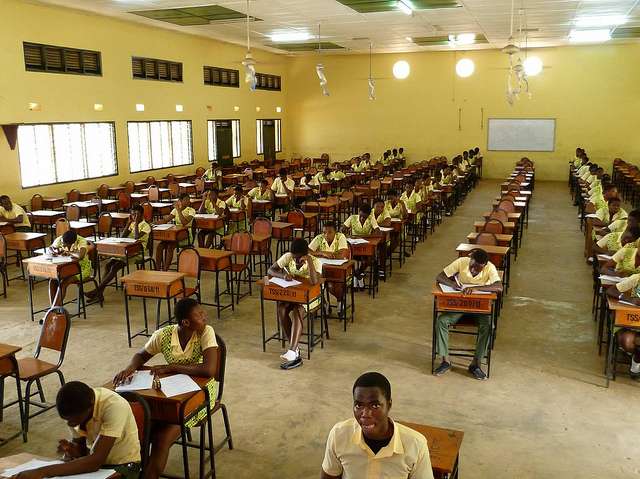Over 460,000 candidates are to sit for the Basic Education Certificate Examination (BECE) which begins today [Monday, June 5] across the country.
Over the years, the examination’s body of the country (WAEC) has been faced with incessant cases of leakages of exams questions as well as other exams malpractices.
The influx of new technologies and social media have also come with its perils for these exams. Students are able to easily spread and access leaked questions via social media networks such as WhatsApp. WAEC and the education ministry of Ghana appear ill-equipped to address these malpractices in the face of technological advancements.
Elsewhere, governments have had to resort to total internet shutdowns during such examination periods to curtail these acts.
In Iraq this Spring, thousands of sixth graders will sit down to take a placement exam into secondary school. Per historical facts, the government will shut down the internet to stop them from cheating thereby cutting access throughout the entire country. Everyone will be disconnected, from businesses to emergency workers, to hospitals and government agencies, all to stop students from sharing exam answers with each other.
Why are governments ordering shutdowns for school exams?
The connective tissue between these shutdowns is that the exams are extremely important for a student’s academic and professional career. They can determine placement for students who may not advance to further schooling if they are not successful. As a result, some students — and even teachers and parents — feel compelled to cheat however they can, whether through scribbling answers on their sneakers or leaking them online through apps like WhatsApp.
Exact statistics are hard to come by, but many governments take the problems with cheating seriously enough to continue to resort to shutting down the entire internet for them — without considering the drastic consequences for human rights and economies.
No one wants to be cut off from the internet. We know that shutdowns harm economies, and as much as $2.4 billion was drained from the global economy between 2015 and 2016, according to the Brookings Institution.
Over the past few years, Access Now, the global convener of the #KeepitOn campaign, consisting of 115 organizations including Penplusbytes from 52 countries that are devoted to fighting internet shutdowns has documented more than 30 intentional disruptions of the internet by governments to stop cheating on school exams. This is a global issue that affects countries as diverse as Algeria, Congo-Brazzaville, Ethiopia, India, Iraq, Syria, and Tunisia. Many of these shutdowns are nationwide blackouts. Some, such as the ones in Tunisia, are localized to within a few blocks of the examination sites, while in other countries, such as Algeria, governments have targeted specific apps.
Even though Ghana has remained resolute in keeping the internet on over the years, there is the need to address the recurring cases of examinations leakages and malpractices every year without resorting to a shutdown of any sort.
As Junior High school students sit to write their final exams this week, the Ghana Education Service (GES), has warned candidates and their teachers to desist from any examination malpractice during the exams.
According to the service, it will sanction severely any teacher who breaches the rules of the examination. Students involved in such practices will also have their exam papers cancelled or results withheld.
Credit: AccessNow






